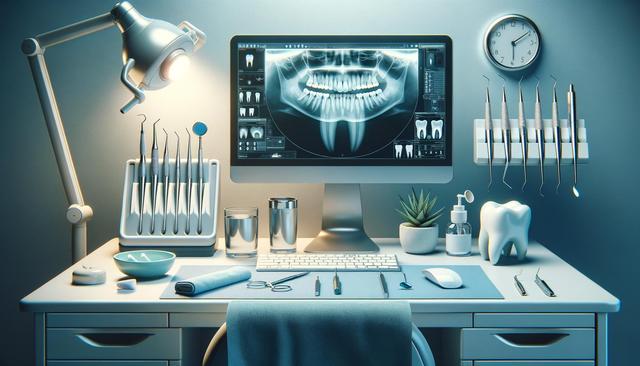Growing Interest in the Dental Hygiene Field
In recent years, more individuals have been exploring careers in dental hygiene, and this trend shows no signs of slowing down. The field offers a unique combination of patient care, scientific knowledge, and hands-on skills, making it an appealing choice for those interested in health sciences. Job stability and a clear career path are also major draws. With increased public awareness about oral health and its connection to overall well-being, the demand for preventive dental care services has risen. This has led to a growing need for skilled professionals who can support dentists in delivering high-quality care.
Dental hygiene programs have adapted to meet this demand, offering flexible learning options and comprehensive training that fits into a variety of lifestyles. Students can often choose between full-time, part-time, and even online formats. These options make it easier for career changers or recent high school graduates to enter the field. Additionally, the profession is known for offering a good work-life balance, which appeals to many who are looking for stable yet meaningful employment.
What Dental Hygienists Do
Dental hygienists play a critical role in oral healthcare. They are responsible for more than just cleaning teeth. Their duties include educating patients about proper oral hygiene, screening for oral diseases, and assisting dentists with various procedures. Their work ensures that small dental issues are identified early, often preventing the need for more extensive treatment later on.
Key responsibilities of dental hygienists include:
- Conducting oral health assessments
- Removing plaque and tartar from teeth
- Taking and developing dental X-rays
- Applying preventive treatments like fluoride and sealants
- Educating patients on maintaining oral health
This mix of technical skill and patient interaction makes the role both challenging and rewarding. It also allows for continual learning as dental technologies and methods evolve.
The Educational Path to Becoming a Dental Hygienist
To become a dental hygienist, individuals typically enroll in a dental hygiene program at a community college, technical school, or university. These programs usually take between two and three years to complete, depending on the level of certification or degree pursued. The curriculum blends classroom instruction in subjects like anatomy, microbiology, and dental materials with clinical practice under supervision.
Students gain hands-on experience in real-world settings, which prepares them for the practical aspects of the job. Many programs also include coursework in communication and patient management, recognizing the importance of interpersonal skills in healthcare. After completing an accredited program, graduates must pass a licensing exam to begin practicing professionally.
Program participants can expect to learn:
- Human biology and oral anatomy
- Dental radiography techniques
- Preventive dentistry and patient education
- Ethics and legal aspects of dental care
This well-rounded approach ensures that graduates are not only technically competent but also prepared to work effectively as part of a dental care team.
Career Outlook and Opportunities
The career outlook for dental hygienists is positive, with continued growth anticipated in the coming years. As the population ages and retains more of their natural teeth, the need for dental services, including preventive care, is likely to increase. This trend supports job stability and creates opportunities in a variety of work environments.
Dental hygienists can find employment in:
- Private dental practices
- Public health clinics
- Schools and educational institutions
- Corporate dental programs
- Research and product development
Additionally, some dental hygienists choose to specialize in areas such as pediatric care, periodontics, or dental education. With further education, there are also options to advance into administrative roles or to pursue teaching positions in dental hygiene programs.
The diversity of work settings and advancement opportunities makes dental hygiene an attractive long-term career choice.
Why More Students Are Choosing Dental Hygiene Programs
Several factors contribute to the rising interest in dental hygiene programs. For one, the healthcare sector is consistently viewed as a stable industry with meaningful career paths. Dental hygiene, in particular, offers an accessible entry point with a relatively short education timeline compared to other healthcare roles. This makes it appealing to individuals looking to enter the workforce quickly while still contributing meaningfully to patient care.
The hands-on nature of the training, coupled with a strong foundation in health sciences, appeals to both science-minded individuals and those who enjoy interacting with people. Furthermore, the ability to work flexible hours and maintain a balanced lifestyle is another compelling aspect. Many professionals in the field report high levels of job satisfaction, which further encourages new students to explore this path.
Educational institutions have responded to this increased interest by expanding program offerings, incorporating new technologies, and ensuring that graduates are well-prepared for the evolving needs of dental practices. As more people recognize the integral role of dental hygienists in preventive health, the profession continues to grow in both scope and prestige.
Conclusion: A Practical and Purposeful Career Path
For those considering a career in healthcare, dental hygiene offers a practical and meaningful option. The blend of science, patient care, and hands-on training provides a well-rounded foundation for a career that is both stable and impactful. As the demand for preventive dental care continues to rise, so too does the value of skilled dental hygienists. Whether you’re a recent graduate or someone seeking a career change, enrolling in a dental hygiene program can be a significant step toward a rewarding profession in oral healthcare.




Leave a Reply